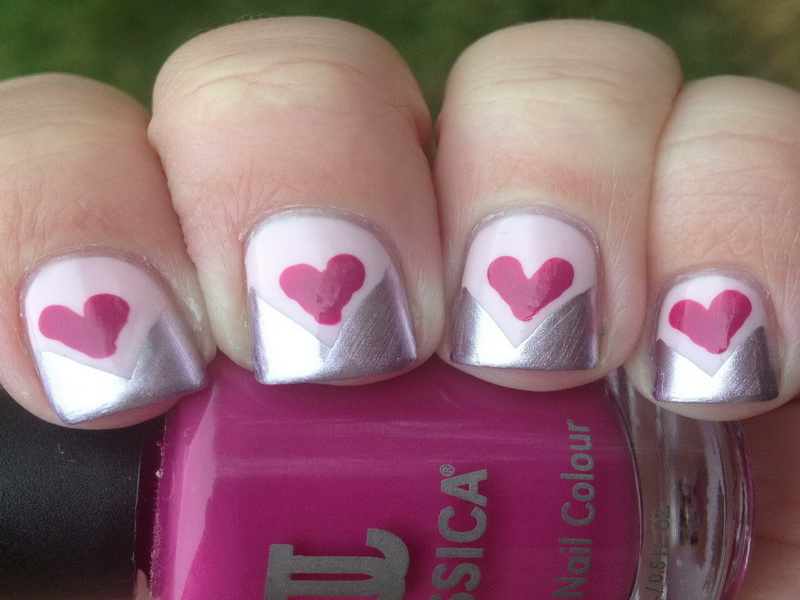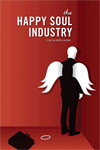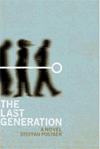Addicts All
December 1, 2020

Everyone, you think, is some kind of addict. Be they active, recovering, or on the brink. Passions which are good become obsessions which are bad. People are self-seeking. This is the human condition, the result of Original Sin. Yearning. Craving. Lusting. Demanding. Wanting. Needing. Soothing. The seeds of addiction are there, have always been there. Many are able to temper these urges, denying the seeds what they need to flourish. But they’re still there. Waiting for a deluge, a perfect storm of misery or even joy… or just another shitty day. Then boom! Out comes the Hagen Das. The lonely housewife turns on the TV and never turns it off. An old man retreats to the garage for a smoke. Some concede to only a few addictions. Maybe they are harmless ones – a gardening obsession, collecting figurines. Or weird: like hoarding. Hidden from the world. In others the seeds erupt as soon as they touch a nerve, like weeds in a vacant lot. Out of control. You’ve met no one who has not succumbed to something. Drugs and alcohol are the poster children for addiction. But plenty else is out there.
Most of the jobs people do are motivated by addiction. The salesman would like nothing more than for everyone to be addicted to his wares. Many are called dealers. They give out samples. The chef wants you to crave his cooking, the barista her coffee. And so on. If one deconstructs any vocation creating and/or satisfying needs and wants were at its core. Your job in particular was culpable. In more than a poetic sense advertising worked every one of the seven deadly sins. The theme for your advertising blog: We make you want what you don’t need. Indeed. Maslow’s Hierarchy of Needs is a litany of demands that must be met.
You suppose teaching is not inherently linked to a type of addiction. Considered noble and selfless, teaching gets a pass. Undoubtedly, there are other clean human activities. But you are not trying to win an argument; you are merely making an observation. As an addict of many things you are wont to rationalize your behavior. This theory of yours is likely an example.
A Chorus of Sirens
July 24, 2020

Everyone, you think, is some kind of addict. Be they active, recovering, or on the brink. Passions which are good become obsessions which are bad. People are self-seeking. This is the human condition, the result of Original Sin. Yearning. Craving. Lusting. Demanding. Wanting. Needing. Soothing. The seeds of addiction are there, have always been there. Many are able to temper these urges, denying the seeds what they need to flourish. But they’re still there. Waiting for a deluge, a perfect storm of misery or even joy… or just another shitty day. Then boom! Out comes the Hagen Das. The lonely housewife turns on the TV and never turns it off. An old man retreats to the garage for a smoke. Some concede to only a few addictions. Maybe they are harmless ones – a gardening obsession, collecting figurines. Or weird: like hoarding. Hidden from the world. In others the seeds erupt as soon as they touch a nerve, like weeds in a vacant lot. Out of control. You’ve met no one who has not succumbed to something. Drugs and alcohol are the poster children for addiction. Plenty else is out there.
What are some of yours?

The glittery potential for every brand…
According to Zen, one’s serenity is inversely affected by one’s attachment to things. The more you live the more you realize it. Obviously, you can’t take anything with you but I wonder why it takes us so long to figure that out? On some level, we all accept the spiritual truth in this idea but on a day to day basis most of us don’t “go there.” We are too busy acquiring things, building things, starting things and ending things.
When I began this blog a decade ago I titled it the way I did for irony’s sake. As if there could be Gods of anything, let alone advertising. Ha! I also gave the blog a subhead: “We Make You Want What You Don’t Need.” Even then I felt the low-level hum of tension inherent to making a living in Adland. I’m an agnostic (mostly leaning on belief in a higher power) but I’m also a realist (leaning on skepticism). Still, I knew and know that making people covet brands was a form of idolatry. Obviously, I’m not talking about selling a car on Craigslist. I’m referring to branding. Big “A” advertising: Nike, Apple, McDonald’s, etc…
As brilliant as Nike’s historical marketing story is (and precisely because of), there is a tension to it. When Air Jordan’s came out with its iconic marketing (the jump man and the swoosh and “Just Do It”), all hell broke loose. People who could least afford them wanted them the most. And, well, bad things happened to realize those aims. People stole for them. Harmed others. Or more casually frittered away resources. Nike had become a religion. It is believed God can walk on water. And so, as all of us are lead to believe, with a pair of Air Jordans, can we.
This is an extreme example and not typical of most branding efforts. Yet, that is not because we don’t try to achieve those results. We do. Therefore, in theory and sometimes practice, we are efforting to “make people want what they don’t need.”
Admit it, copywriters. When you’re drafting a manifesto for a product or service or company (it doesn’t much matter what the thing is) don’t you feel the power at your fingertips? There, at your desk, you are creating a myth. Our words are like sparks and we want them to ignite. We are toying with Pandora’s Box and it is nothing short of thrilling. For me it is.

As far back as 2008, I made a presentation at Cannes (at the Palais no less!) sharing some of the above ideas. I recklessly compared coveting Gold Lions to the Israelites worship of a Golden Calf. Needless, to say I was not invited to give that speech again. Ever.
Who doesn’t want their copy to go viral? To be shared. To spread like, frankly, a disease. If it does, we are blessed with silver in our paychecks and Gold Lions at Cannes. With powerful alchemy, we will have turned people into consumers. Into Believers. We will have become GODS OF ADVERTISING!
Between addiction and love live our obsessions. Some thoughts…
December 1, 2014
Been thinking about obsession. Not Calvin Klein’s perfume from the late 80’s. Though it is a fitting digression, seeing as Obsession was a quintessential icon of the greed decade, which actually does lead to my thoughts on obsession…
My young daughters love to toss around the word “obsession” to mean something they can’t stop thinking about and/or get enough of. A good example might be a type of candy or a popular song. Maybe it’s a brand of clothing or a food item from this restaurant or that store. And so on.
Ew.
Now you know why advertisers are so interested in obsession. If only they could get more people to obsess about their products. If only. But obsession is ephemeral, like a vapor. Here today gone tomorrow or, if advertisers are lucky, the day after tomorrow.
As I think about obsession, I realize it lies somewhere between addiction and love: the third point in that Bermuda Triangle. The differences are subtle but profound. Love generally is a “good” thing. Addiction not so much. Obsession can go either way. By my daughters’ definition, obsession is generally harmless.
“OMG. I’m so obsessed with painting my nails.”
But adults obsess. I am or have been obsessed with all manner of things, including in no particular order: leather jackets, bicycles, running, fishing, zombies, old oil paintings, U2, aquarium keeping, silver rings and writing. To you a random list but for me these things are or have been significant totems. One aspect that marks them as obsessions is my inability to stop thinking about them. It is like my head is a rock tumbler and I keep turning over the same thoughts. I have literally stayed up nights wondering if one of my aquarium corals is dead or merely in a dormant stage. Obviously, the Internet is a fiendish companion to obsession. Search “dormant corals.” Search “reviving dormant corals.” You get the idea.
While obsessive behavior resembles addiction it is not. Addiction is the Ace of Spades in that it trumps all obsessions and very often love for that matter. An addict will stop at nothing and stoop to anything to get what he wants. Trust me.
I do not know what it is like to obsess about another human being. Perhaps there was a girl in high school. But those memories are vague. I love my wife and children unconditionally but I am not always thinking about them. When I do worry and wonder about one of my girls I feel intensely vulnerable and so I stop. Rightly or wrongly, I take love for granted. I’m working on it. On the other hand, obsessing over another person is not healthy either. See stalking.
Leather me up…
What I like about obsessions are their ability to fill one up. A hobby (fish keeping), collection (leather jackets) or passion (U2 music) somehow makes life keener and more fun. I’ve been instructed that it might behoove me to set my compass on a more spiritual course. Alas, I may be too cynical for that. Perhaps that’s why I’m obsessed with U2. Like Bono, I still haven’t found what I’m looking for. In the meantime, I’ve got my eye on this badass vintage biker jacket on ebay.
Wanting drives every advertisement ever made. Sometimes, it passes as “need” but let’s call a spade a spade. We want. And we want a lot. Whether it’s a new car or world peace human beings are defined by this unnatural urge. I say unnatural because wanting is not an impetus for survival. Animals need sustenance and they take what they can get. A Bear eats salmon when they’re running. Berries when they bloom. It does not crave one for the other.
When born, we are much like other animals. Helpless. Dependent on our parents. A baby needs food and it is given to him. Oddly, an infant remains this way far longer than any other creature. It takes an inordinate amount of time for us to become self-serving. But when we get there we arrive in style.
By the time we’re children, the wanting mechanism is in full flower. We want more than sustenance. We want Cheetos and iPads and Sour patch Kids. Our crying out of need becomes warped, narcissistic. As we get older we crave an ever larger, more expensive and baseless array of things. Want has taken over for need.
So utterly commonplace, the only time we hear about of want is when we are in church, listening to a dusty sermon on greed and gluttony or faced with those who are seemingly without it. Like the Amish. Buddhists. Or Sinead O’connor.
Which begs the question: Is ‘wanting’ a bad thing?
It’s tricky. Unraveling the ball of yarn to get from ‘want’ back to ‘need’ is no easy feat. Does one have what he needs in order to survive? If yes, then it’s everything after that that is in question. The defect (if it is a defect) becomes pronounced when we want better versions of what we already have (car, house, boobs) or when we want what we don’t have (two cars, Cartier watch, mistress) or what someone else has (all of the above).
Keeping up with the Joneses is nothing new. This is the ‘longing’ all of us in Adland cultivate and exploit every day. For without it what would be the point of marketing? Does advertising create it? I think so. Like the header on my blog reads: We make you want what you don’t need.
I’m no socialist. I’m not even Alex Bogusky. And I’m as culpable (if that’s the right word) as any of you. Likely more so. But when I observe my young daughters pining for all the stuff they see on TV, the Internet and, most poignantly, when visiting their rich friends I am forced to wonder about wanting.








 The Happy Soul Industry
The Happy Soul Industry The Last Generation
The Last Generation